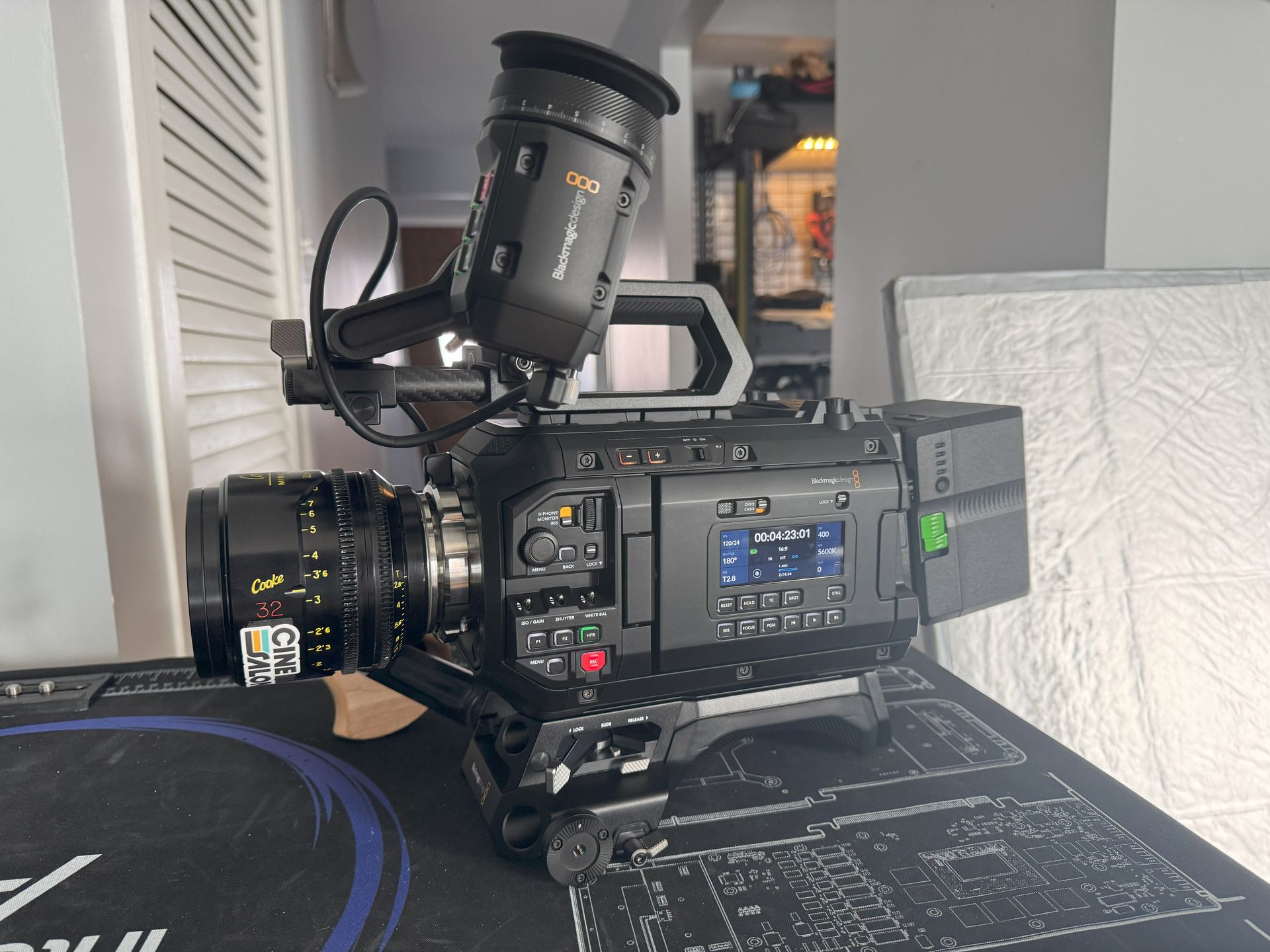How to Become a Creative Networking Pro: 15 Expert Tips
Networking is an important skill for professionals in any industry. Whether looking for a job, trying to build your business, or simply expanding your professional network, networking can be a powerful tool. Here are 15 expert tips for mastering the art of networking:
1. Understand the Importance of Networking:
Networking connects like-minded people. They can give you success-boosting tips. Knowing others in your area can help you understand how things function and what works. Networking enhances learning. Connecting with people from different backgrounds might teach you new methods to improve your work. You can get new insights from others' accomplishments and misfortunes.
Networking opens doors. Staying in touch with people in your sector might help you find job openings, speaking opportunities, partnerships, and other career-boosting chances. Keep up with trends and exploit new possibilities.
2. Understand the Importance of Networking
Regarding networking, having a positive and proactive attitude is key. By adopting a networking mindset, you can build strong relationships, discover new opportunities, and achieve your goals. First, approach networking with a positive attitude. Don't view it as a chore or something you must do, but rather as an opportunity to meet new individuals, learn new things, and expand your horizons. Look for the good in others and be open to new ideas and perspectives.
Communicate honestly. Don't pretend to like something you don't. Be authentic. Demonstrate a genuine interest in individuals and their viewpoints, and find methods to improve their lives and careers.
Expect slow returns because building great relationships takes time. Take the time to build meaningful relationships. Keep trying if you fail. Continue networking. Show thanks for your assistance.
3. Build Your Networking Strategy:
First, define your objectives. What do you hope to accomplish by networking? Do you want to find a job, build your business, or make new friends? Whatever your objective, it's crucial to have a clear goal.
Secondly, identify your target audience. Who do you want to connect with? Think about the industries, organisations, and individuals relevant to your objective. It will help you focus your networking efforts and make meaningful connections.
Thirdly, create a plan of action. How will you reach out to your target audience? Will you attend networking events, join professional organisations, or connect with people on social media? Create a step-by-step plan that outlines your activities and goals.
Fourthly, prepare your elevator pitch. It briefly summarises who you are, what you do, and what you seek. It's essential to have a clear and concise elevator pitch that you can use when introducing yourself to new people.
Lastly, follow up and maintain relationships. Building a network is about more than just making connections. It's about nurturing those relationships over time. Follow up with people you meet, send them a thank you note, and stay in touch regularly.
4. Focus on Quality, Not Quantity:
It's not about how many connections you have, but rather the quality of those connections. Be selective about who you network with and focus on building genuine, meaningful relationships with them.
5. Identify Your Networking Goals:
Regarding networking, it's essential to have clear goals in mind. Here are some recommendations to help you set specific, measurable, and realistic networking goals:
- Make sure your goals are specific. Start by pinpointing what you want to gain through networking. Instead of saying, "I want to meet new people," try saying, "I want to attend at least one networking event per month and meet at least two new people each time."
- Make your goals measurable. It means you can track your progress and determine whether you've achieved your goal. For example, you could follow the number of new people you meet at each event or the number of new LinkedIn connections you make each week.
- Make sure your goals are realistic. Refrain from setting yourself up for disappointment by establishing overly ambitious or unrealistic objectives. Instead, set ambitious but attainable objectives. For instance, if you are an introvert, attending five networking events per week may not be a realistic objective, but attending one or two monthly networking events may be.
Setting networking goals can help you stay focused and motivated as you build your network. By setting specific, measurable, and realistic goals, you'll be well on your way to achieving your networking objectives!
6. Prepare for Networking Events:
A networking event can be an excellent opportunity to meet new people, expand your network, and learn about different industries and professions. However, preparing beforehand is essential to make the most of a networking event. Here are some tips to help you maximise your time and efforts before the event:
A clear goal will help you stay focused and maximise your time at the event. You should also research the event and attendees. Look up the event online and see who else is attending. Take note of speakers, sponsors, or exhibitors who may interest you. Reach out to attendees beforehand and introduce yourself. It will make it easier to initiate a conversation when you meet in person.
Next, prepare your elevator pitch. An elevator pitch summarises who you are, what you do, and what you're looking for. Practice your pitch beforehand so you can deliver it confidently and concisely. Focus on how you can help others, not just what you want to get out of the event. It will make you more approachable and increase your chances of making meaningful connections.
Lastly, bring business cards and other materials. Ensure you have plenty of business cards to hand out to people you meet. You can also get different materials, such as a resume or portfolio, if relevant to your goals for the event. It will make it easier for people to remember you and follow up with you after the event.
7. Make a Great First Impression:
Making a great first impression is essential when networking. Here are some tips to help you master the art of small talk and body language:
- Start with a smile and a firm handshake. When you meet someone new, make eye contact, smile, and offer a firm handshake. It shows that you are confident and friendly.
- Engage in small talk. Small talk is an excellent method for breaking the ice and establishing rapport.
- Pay attention to body language. Body language shows a lot about your mood and attitude. Stand up straight, make eye contact, and avoid crossing your arms or looking at your phone.
- Take care of your tone. Your tone of voice can also affect how others perceive you. Match your tone to the situation and the person you're speaking to.
Remember, small talk aims to build a connection and start a conversation, not to impress the other person with your knowledge or accomplishments, by smiling, offering a firm handshake, engaging in small talk, paying attention to your body movements, and watching your tone.
8. Be Yourself and Authentic:
Don't try to be someone you're not to impress others. Authenticity is critical to building genuine connections with people. Be true to yourself, and let your unique personality and perspective shine through.
9. Take advantage of business cards:
One of the essential parts of in-person networking is that it frequently occurs impromptu, with few chances to have your CV with you. A personal business card or a brief CV on a business card or postcard make excellent replacements. These tools can include connections to your social media accounts and LinkedIn profiles and emphasize your desired titles, industries, and regional preferences. They can also include your contact information.
But use the front of the card instead of the reverse, or go for a folded card with two portions inside. Provide as much of your career brand as possible in a portable format that you can carry and strategically distribute during live events.
10. Engage in Meaningful Conversations:
Engaging in meaningful conversations is crucial when networking. Here are some tips to help you ask the right questions and listen effectively:
- Ask open-ended questions. Open-ended questions encourage the other person to share more information and can lead to deeper conversations. Avoid asking yes or no questions, and instead, ask questions that start with "What," "How," or "Why."
- Listen actively. Listening is just as important as asking questions. Deliver attention to what the other men say and ask follow-up questions to show interest. Avoid interrupting or dominating the conversation, and let the other person speak.
- Show empathy. Try imagining things from the other person's vantage point. It can help you build a connection and rapport with them. You can show kindness by nodding, making eye contact, and using phrases like "I understand" or "That must have been difficult."
- Share your own experiences. Feel free to communicate your own experiences and stories. It can help you find common ground and build a connection with the other person. However, keep the focus on the other person and their experiences.
- Ask for contact information. If you've had a meaningful conversation with someone, don't be afraid to ask for their contact information. It can help you stay in touch and continue to build a relationship.
Remember, networking aims to build meaningful relationships, not just to exchange business cards. By asking open-ended questions, listening actively, showing empathy, sharing your experiences, and asking for contact information, you'll be well on your way to engaging in meaningful conversations and building lasting relationships with others.
11. Follow Up Effectively:
Building lasting relationships takes time and effort. By sending timely and personalized follow-up messages, connecting on social media, attending future events together, and offering something of value, you'll be well on your way to building solid relationships and staying connected with your network.
Send a timely and personalized follow-up message. Within a day or two of meeting someone, send them a personalized letter thanking them for their time and mentioning something specific you discussed. This shows that you value the connection you made with them.
Connect on social media. Look for the person you met on social media platforms like LinkedIn and send them a connection request. It can help you stay connected and up-to-date with their professional achievements and interests.
Attend future events together. If you and the person you met have similar interests or work in the same industry, look for future events you can attend together. It can help you build a stronger relationship and expand your network further.
12. Build and Maintain Relationships:
Regular contact with members of your network is the first step in developing and sustaining connections. It may be as easy as sending a message to check in and see how things are doing, sharing an article or resource pertinent to the conversation, or connecting with them on social media.
It's also important to offer assistance and support to create great partnerships. Consider ways to assist the people in your network, such as facilitating introductions, providing feedback, or offering advice. Attending events and gatherings is another excellent way to meet new people and keep in touch with those you've already connected with. Maintain your authenticity while concentrating on making real connections with the people around you.
Do not hesitate to discuss your past achievements and current difficulties with your network. You can establish a network of supportive and helpful individuals who can assist you in achieving your personal and professional objectives if you bring value to others and maintain strong connections. It can help you reach your goals both personally and professionally.
13. Be Curious and Ask Questions:
Networking isn't just about promoting yourself and your interests. It's also about learning from others and building mutual relationships. Be curious about others' work and experiences, and ask thoughtful questions that show you're genuinely interested in getting to know them better.
14. Overcome Common Networking Challenges:
Networking can be challenging, and it's important to remember that everyone experiences nerves and rejection occasionally. To overcome these obstacles, start by reframing your mindset instead of focusing on what you can get from others. Consider networking as an opportunity to interact with and learn from others.
If nerves are an issue, practice speaking with a friend or family before attending an event. You can also arrive early and take deep breaths or meditate to help calm your nerves. Remember that taking breaks is okay if you feel overwhelmed, and try to focus on having genuine conversations instead of trying to impress others.
If nerves are an issue, practice speaking with a friend or family before attending an event. You can also arrive early and take deep breaths or meditate to help calm your nerves. Remember that taking breaks is okay if you feel overwhelmed, and try to focus on having genuine conversations instead of trying to impress others.
15. Use Social Media Strategically
Social media platforms like LinkedIn, Twitter, and Instagram can be powerful tools for networking, but it's essential to use them strategically. Be intentional about who you connect with and how you engage with them. Share helpful content and insights, and participate in relevant discussions and groups.
Finally, it's vital to stay faithful to yourself when networking. Don't try to be someone you're not; focus on building genuine connections with others. If you need help approaching networking, contact a mentor or trusted friend for guidance and support. With time and practice, you'll be able to overcome common networking challenges and build strong relationships that can help you achieve your goals.
Conclusion:
Networking is vital for building meaningful relationships and achieving personal and professional goals. Networking requires you to set goals, research your targets, prepare for events, create an excellent first impression, have meaningful discussions, follow up, and build and retain relationships by offering value and staying in touch. These strategies will help you build your network and create chances. Developing great relationships takes work, but the rewards are worth it.

Get total clarity on your video marketing and paid media with our FREE comprehensive data audit.
CINESALON NEWS
POPULAR POSTS
Like what you read?
Interested in having video do more for you? Give us a shout on the form or book a call.
We make your complex ideas simple to everyone else.
Do video marketing
better.
Hire the experts at CineSalon.
Quick Nav
Company
Locations
Case Studies
Services
All Rights Reserved | CineSalon







